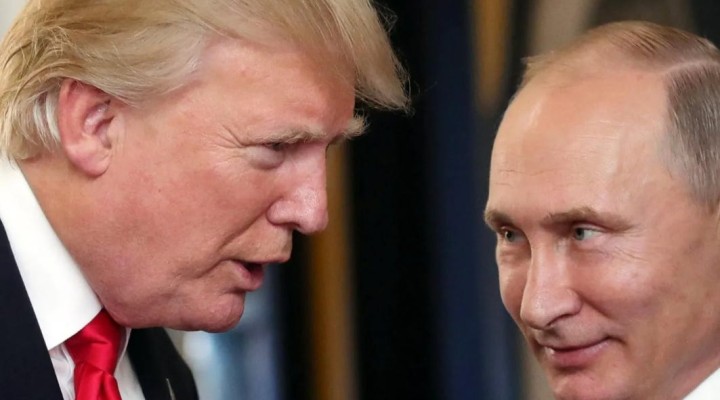The regional realignment post-Syria-coup

The shifting sands of international relations with Assad “out of the way”
On Thursday I am going to record a conversation with Moscow-based journalist and friend, Fiorella Isabel. You can follow her excellent analysis at her Substack.
We are going to focus on the direction of travel of Russian foreign policy since the Ottoman, Zionist, Nazi, US, EU, UK, Wahhabi coup finally succeeded in plunging Syria into a terrorist vacuum post-Assad.
I found this article by another esteemed colleague, Eric Zuesse, to be very insightful. As Eric says:
My main field of specialization, within meta-science (my major field), has always been ideology. It’s a field in which no university offers a Ph.D or other doctoral degree, but I have been studying it intensively on my own ever since the 1960s. The closest existing field to it is political psychology, but unlike that, it includes also ethics (the analysis of moral beliefs); and, unlike philosophical ethics or the religious sub-category of that, it’s purely scientific, which means that it is based only on all of the empirical evidence about it and excludes as being evidence anything that is not derived from trustworthy historical records; so, all mythological ‘evidence’ is excluded from being considered in it.
If I were briefly to define the field, it is scientific ethics, but anyone who would interpret that phrase to mean “ethics of science” would get it wrong. It’s instead entirely non-philosophical, non-speculative, ethics. It is only ethics that is 100% empirically (meaning historically — not at all mythologically) based. It might also be called “post-philosophical ethics,” because all of philosophical ethics is based only on opinions, not on any empirical studies, it’s not rooted purely in historical accounts but also in other people’s opinions and in myths.
I highly recommend reading the article in full but here a couple of relevant excerpts:
Trump always seeks win-lose games so that he can come out on top (he is a “supremacist”), but tries to do that by negotiation first, and only if the opponent won’t negotiate about a particular matter will Trump resort to physical coercion (military war) in order to achieve his aim. He never likes win-win games or lose-lose games, but ONLY win-lose games, and he always demands that he must come out on top. That is the essence of Trump, as Lukyanov describes him. All of Trump’s decisions and actions (not his mere promises) have been consistent with that.
However, Lukyanov (like Putin himself) doesn’t quite understand the implications of this; he says “Trump’s ‘America First’ policy focuses on national interests, which opens the door for pragmatic deals based on mutual benefit.” That is win-win, so Trump isn’t like that; Trump will instead demand that America (its billionaires — that’s all he, just like his recent predecessors, really cares about) must win more than Russia (and, for Putin, that means the Russian public must win — NOT necessarily that Russia’s billionaires must) win.
If Trump can’t get a deal in which “America” (its billionaires, who control its largest corporations and especially its military manufacturers, who derive their profits from selling to the U.S. Government and its colonies’ Governments) beats “Russia,” then Trump will want to use America’s diplomatic and military power in order to achieve by coercion what he wants.
The aggressor is intrinsically America’s Government, NOT at all Russia’s (and this has been the case ever since the war in Ukraine first started), because Russia has real national-security needs, and America always ignores them. So, unless Trump will suddenly change his basic ideology (change win-lose to win-win), those negotiations will fail and Trump will increase his threats to Russia, which will only strengthen — not reduce — Russia’s resolve to reject Trump’s “deal.”
Putin (like Lukyanov) does not understand this, because Putin’s underlying ideology is to maximize win-win games (which ideology is progressivism), not win-lose games (which ideology is conservatism — supremacism).
Putin even thinks that conservatism is (as Lukyanov put it) “driven by national interests and pragmatic calculations,” and that the opposite, which he mis-calls liberalism (the mixture of progressivism and conservatism) instead of progressivism, is not. However, actually, win-lose, in this case, helps ONLY America’s Billionaires, who control America’s armaments-manufacturers and extraction companies (basically, the war-industries — and America’s armaments-manufacturers have been America’s most profitable corporations ever since the Soviet Union ended in 1991).
This analysis which I largely agree with adds another dimension to my suspicion that Moscow was already working on a ‘deal’ with Trump before his inauguration. A potential deal that led to Russia effectively abandoning Syria to a hellscape of sectarian violence and extremist Islamist law in a country renowned for its historical pluralism.
A recent Arabic channel interview with Turkish Foreign Minister, Hakan Fidan, revealed (again) that Turkey is essential for any future relationship between Russia and Syria ( recent conversation with Lavrov) and that Russia made a pragmatic strategic decision to abandon Syria.
https://beeley.substack.com/p/the-regional-realignment-post-syria
 TheAltWorld
TheAltWorld 
0 thoughts on “The regional realignment post-Syria-coup”